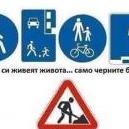Народът Фир Болг от the Lebor Gabala Erren (Leabhar Gabala)
-
Последна активност
-
- 58 мнения
- 19664 прегледa
-
- 45 мнения
- 549 прегледa
-
Руско-украинската война 2022-2024 година. 1 2 3 4 191
От Р. Теодосиев, in Руско-украинската война 2022 година.
- 4764 мнения
- 373614 прегледa
-
- 23 мнения
- 178 прегледa
-
- 2759 мнения
- 251956 прегледa
-
-
Последно разглеждащи 0 Потребители
- No registered users viewing this page.



Препръчано мнение
Напиши мнение
Може да публикувате сега и да се регистрирате по-късно. Ако вече имате акаунт, влезте от ТУК , за да публикувате.